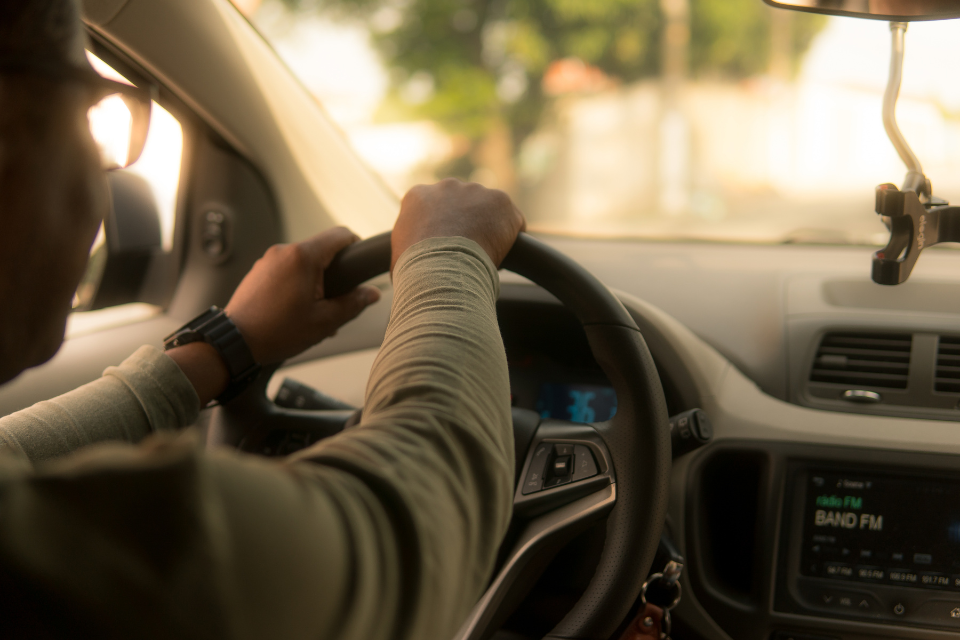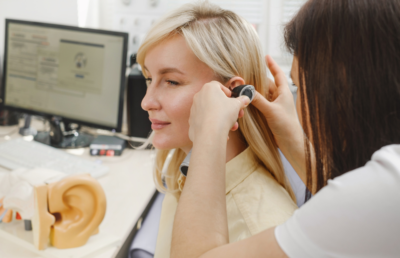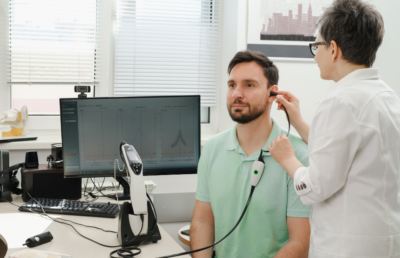Hearing loss is relatively common, especially among older people; approximately 15% of adults in the US report some trouble hearing. When it’s left untreated, hearing loss can worsen over time, can affect your personal and professional life and relationships and can even be a safety issue in many situations, including while driving. Learn more about how hearing loss affects your ability to drive and tips to follow if you’re experiencing problems with your hearing but don’t want to give up driving just yet.
How Important Is Hearing While Driving?
Though your sense of sight is unquestionably the most important when driving, hearing also plays a crucial role when you’re behind the wheel. Your hearing alerts you to all activity around you, such as urgent oncoming of emergency vehicles or a sudden movement in traffic. In fact, in several driving situations, you hear important things before you even see them, for instance, the blaring horn of an impatient driver, the powerful engine of a motorcycle maneuvering through lanes, or your own turn signals. Your hearing can also help you determine if there’s something wrong with your vehicle, like an engine making funny noises.
Can A Hearing Impairment Impact Your Ability to Drive?
The above examples prove how important hearing is when it comes to driving. It is clear that more severe hearing impairment can significantly impact your ability to drive and stay safe in traffic. However, mild hearing loss will probably not stop you from sitting behind the wheel and will not cause any significant issues either. There are still a few useful tips you can follow to help ensure your safety and that of those around you.
See an audiologist
A crucial first step if you’re experiencing any problems with your hearing is to see an audiologist and get a diagnosis and proper treatment. An audiologist can work with you to find the best possible treatment option for you, taking into consideration your most important hearing needs. As hearing loss can worsen over time if left untreated, and can affect your personal and professional life, an early diagnosis is quintessential for your quality of life. As hearing loss usually sneaks up on people extremely slowly, and you may not even know what you don’t hear well, taking an annual hearing evaluation as you get older is important.
Wear hearing aids
Once you get a diagnosis and hearing aids, it’s important you wear them while driving. Hearing aids can amplify the important sounds you hear on the road, and can also keep your auditory system healthy, so your brain doesn’t have to work extra hard to interpret other sounds in your environment. Hearing loss can be more mentally fatiguing than most people realize, so giving your ears and brain a break is essential.
Turn down the noise
While listening to music, the radio, or a podcast while driving can be nice, if you have hearing loss, it’s important to keep the volume low so you have more mental energy to concentrate on other noises around you that are important for your safety. Try to keep the car windows closed to minimize road noise as well. The more extra noise you can eliminate while driving, the better you can focus on the noises you do need to hear for safe driving.
Stay focused
If there are passengers in your car, it’s tempting to engage in conversation to make the time fly. However, participating in any activity other than driving can divert your focus from the road. You can always ask your passengers to keep the conversation quiet, or if you have hearing aids, you may be able to program them to use directional microphones to hear the passengers in your car without needing them to speak loudly.
Everything else, like sending a text or an email, grabbing a bite to eat, or applying makeup, can wait until you reach your destination. While it’s best to avoid speaking on the phone entirely while driving, if you do have to take an important call, you can use hearing aids with Bluetooth technology that sync to your phone to make it easier and safer to take a call. Ask your audiologist about this function if you don’t have it yet.
Rely on your eyes
When one sense is diminished, the others pick up the slack, and dual sensory impairment is quite common as well. Because you’re relying more on your eyes if you have hearing loss, you want to be able to take in as much visual information as possible. Get your eyes checked regularly, just like you should do with your hearing. If you need prescription glasses, always wear them while driving. You can invest in a larger rear view mirror as well and be sure to check it frequently. If you’re driving in a city, you can use reflective surfaces on buildings to identify the direction from where an emergency vehicle may be approaching if you can’t hear it well.
Staying on top of your hearing health is important for your safety and quality of life. If you’re experiencing any problems with your hearing, seeing an audiologist right away can save you money and a lot of frustration and stress in the long run. At Chicago Hearing Services, we believe in personalized care, which means that we take your unique hearing needs into account and work with you to find the best possible treatment option together. Schedule an appointment for a hearing test today!





